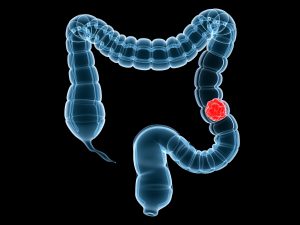An online publication on Jan. 10, 2018 says you can prevent colon cancer with broccoli yoghurt. This may sound like an unusual combination, but experiments by Professor Matthew Chang and Dr. Chun-Loong Ho from Singapore University were very clear in showing the following facts:
- A harmless bacterium, E. coli Nissle, turned into a probiotic through genetic engineering. This E. coli strain was now able to bind to a protein which was present in colorectal cancer cells.
- With the addition of broccoli, some enzymes from the E. coli/protein complex release the cancer fighting sulforaphane from broccoli. Cruciferous vegetables have cancer-preventing properties, When testing the mix with cell cultures, a destruction of 95% of colorectal cancer cells was the consequence.
- Chang and Dr. Ho could show in mice that this destruction only involved colorectal cancer cells, but not cells of breast cancer or stomach cancer. In other words, the cancer treatment was specific for colorectal cancer.
- In mice there was a cure rate of 75% using the probiotic/cruciferous vegetable mix.
Prevent colon cancer and get higher cure rates
The investigators stated that the probiotic/cruciferous yogurt can be used in a twofold way. First, there is a treatment success of 75% of existing cancer. Secondly, when a colonoscopy has localized the tumor and after completion with surgical treatment, close follow-up is necessary. Probiotic/cruciferous yogurt treatment will continue to remove cancer cells, should there be any present after the surgical treatment.
Clinical trials are necessary to show effectiveness in various scenarios in colorectal cancer patients. In this human study colorectal culture results showed a 95% colorectal cancer cure rate, but clinical trials will be necessary to give more information.
Conclusion
It appears that a new approach is potentially bringing about a breakthrough in colorectal cancer treatment. So far the approach has been preventative, to concentrate on doing colonoscopies in intervals and removing polyps that could have turned cancerous later on. This is still a very good approach, and it needs to continue. However, in addition it would not harm to have another method where a special probiotic cruciferous yogurt is a treatment modality. Patients could consume this, and successful cancer treatment could be as high as 75%. The benefits would continue, even if a few cancer cells stay behind following surgery. In this case there would be a 75% success rate of killing these remaining cancer cells off as well. Clinical trials can test all these various scenarios, which is going to be the next step.







